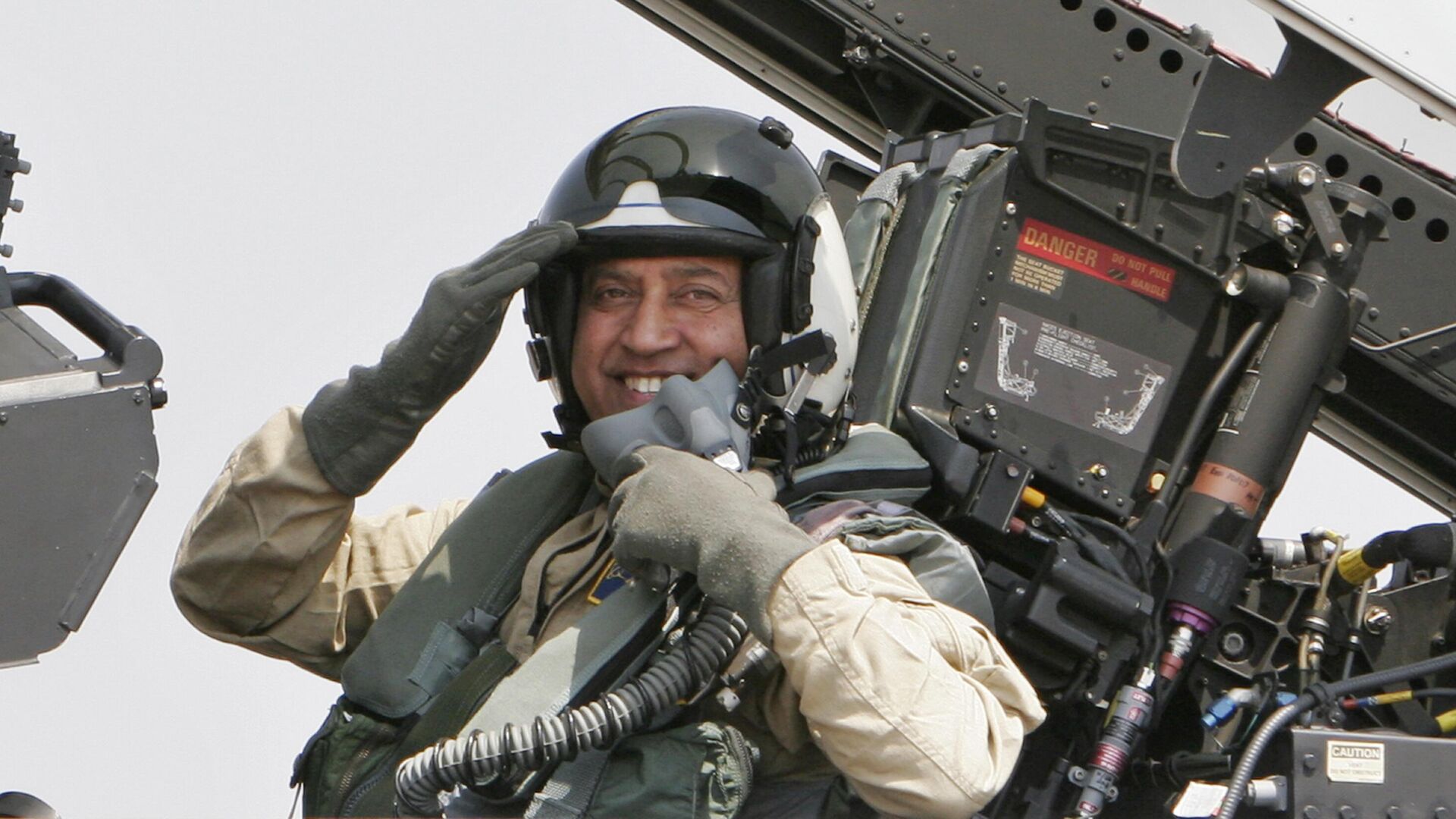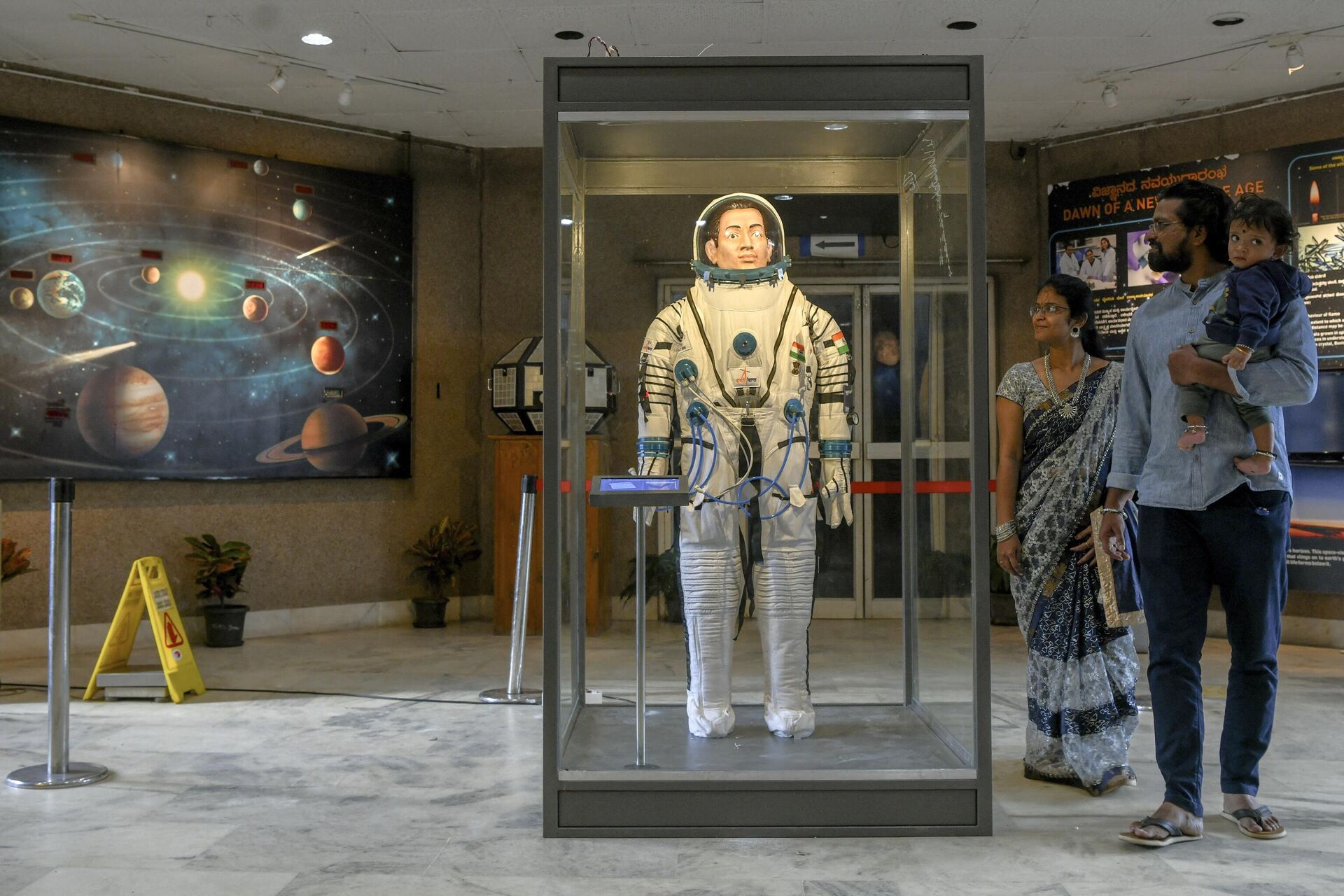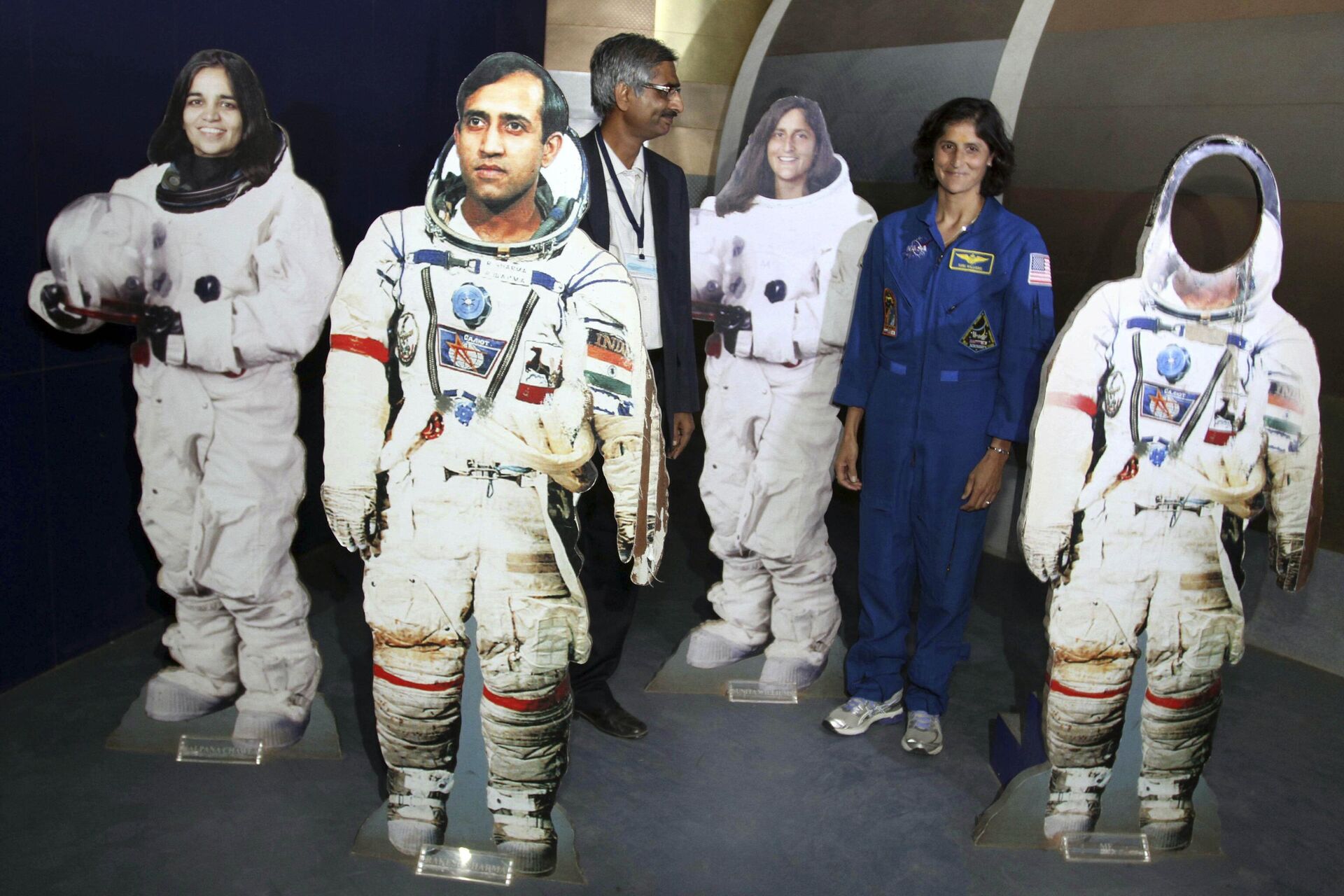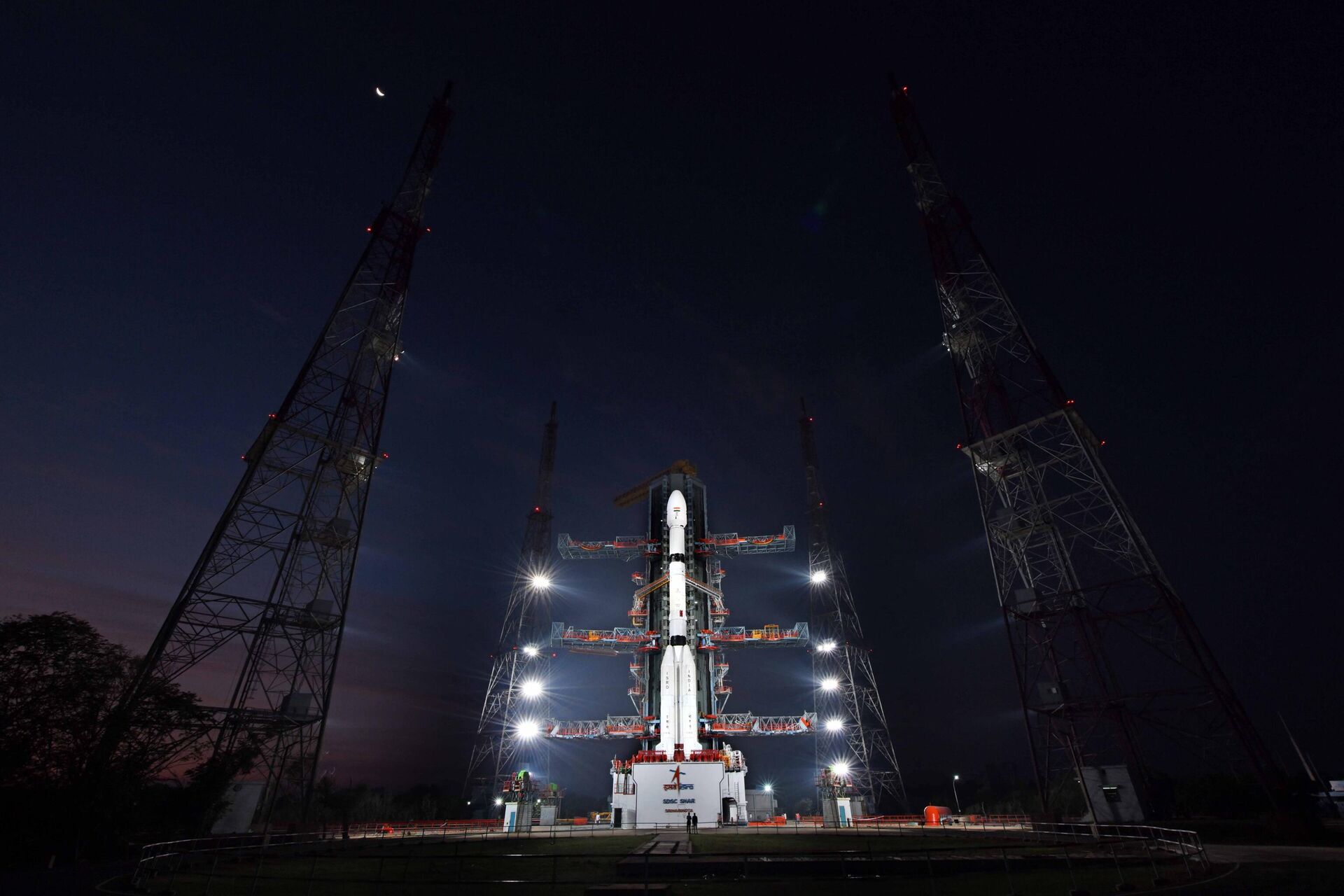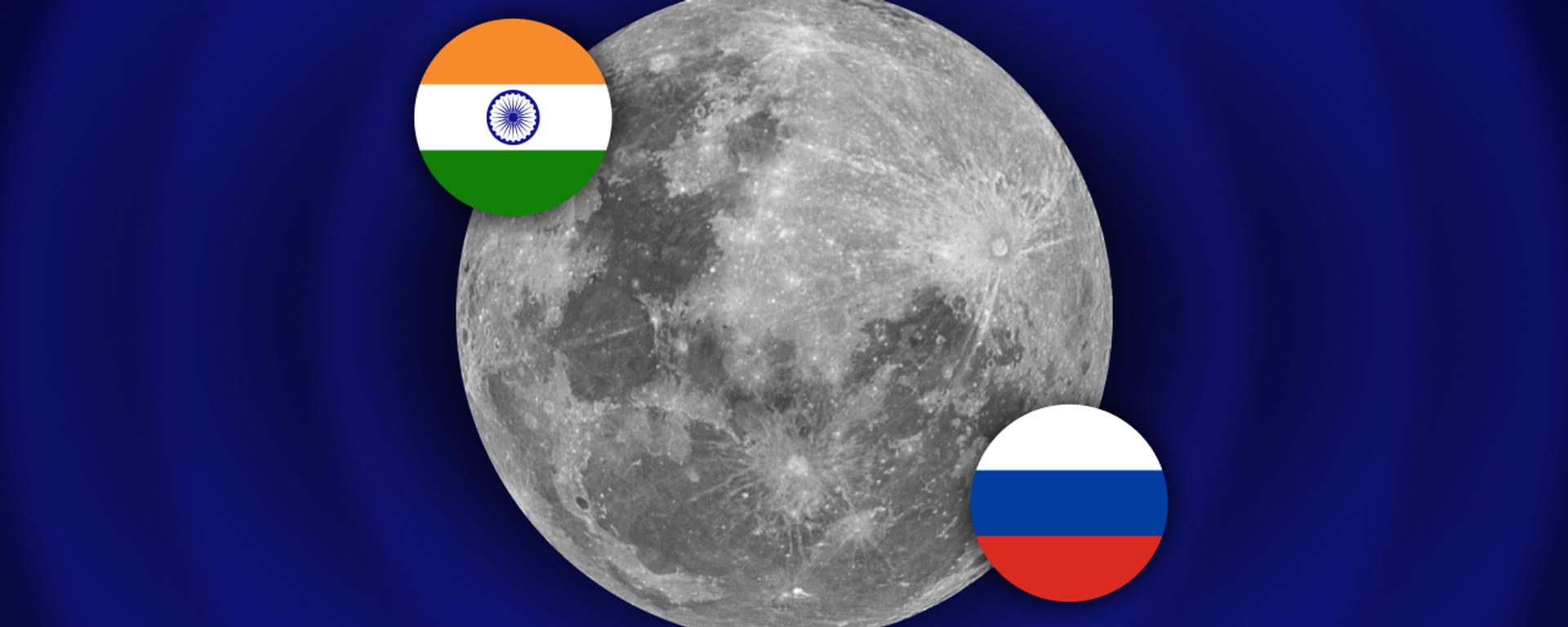https://sputniknews.in/20240401/russia--india-should-lead-the-world-in-space-exploration-rakesh-sharma-7003744.html
Russia & India Should Lead the World in Space Exploration: Rakesh Sharma
Russia & India Should Lead the World in Space Exploration: Rakesh Sharma
Sputnik India
Wing Commander (retired) Rakesh Sharma scripted history on 3 April, 1984, as he flew aboard (then) Soviet spacecraft Soyuz T-11 to become the first Indian citizen to travel to space.
2024-04-01T17:09+0530
2024-04-01T17:09+0530
2024-04-01T18:49+0530
science & tech
science & tech
indira gandhi
india
russia
moscow
indian space research organisation (isro)
the united nations (un)
space satellite
space industry
https://cdn1.img.sputniknews.in/img/07e8/04/01/7008237_28:0:2972:1656_1920x0_80_0_0_61861e64a818fb4dce0652db99735fe3.jpg
Wing Commander (retired) Rakesh Sharma scripted history on 3 April, 1984, as he flew aboard (then) Soviet spacecraft Soyuz T-11 to become the first Indian citizen to travel to space.Ahead of the 40th anniversary of the Soyuz T-11 landing, the decorated Indian astronaut, now 75, spoke to Sputnik India.'Learning Russian Language in a Short Span of Time Especially Challenging'The veteran astronaut recalled that enduring the winter in Moscow for two years also proved to be rather difficult for himself and his family."We were informed that they were relatively mild as the mercury had dropped to below minus 30-degree Celsius. You can imagine that both Ravish Malhotra (who was India's standby astronaut) and myself had come from south of India. We have a shirt-sleeve environment here and then we were pitchforked into the Moscow winter. So that was a bit of a problem," said Sharma."Because, it was my first space flight while both of them were second timers and so they kind of led me around and they mentored me during the flight. Actually, both of them have passed away. Therefore, this 40th anniversary for me is kind of bittersweet. On the one hand, I would have loved to have them share the celebration, and on the other, I just grieve their absence," said Sharma.Sharma stated that he was particularly moved by the view when he first saw Earth from space. He went on to explain the story behind his famous words to then Prime Minister Indira Gandhi, who had asked him how India looked from space.Russia Continues to Remain India's Most Trusted Space PartnerFour decades since Sharma's feat, the Indian Space Research Organisation (ISRO) has been preparing to send a manned low-orbit, low duration, space mission. The four Indian astronauts, part of Mission Gaganyaan, underwent training at the Yuri Gagarin Cosmonaut Training Center, the same place where Sharma completed his pre-flight regime.The veteran astronaut explained the charm of Russia for Indian astronauts.Sharma however stressed that India's own space faring capabilities had developed significantly in the last four decades.'Russia-India Space Cooperation is a Counter-Balance to Western Approach'Sharma hailed the "fruitful" Russia-India space cooperation, which has been a key factor behind the rapid strides made by India in developing its own capabilities.Sharma contrasted the values of Indian and Russian space programme with those of western countries, describing them as being driven by motives of either "conflict management or for profit".Sharma suggested that the West's military-industrial complex, which viewed conflict as means of making profits, wasn't in line with the approaches of Russia and India.He stated that India brought a "very new perspective" to the international space policy table.'Russia is Way Ahead of Other Nations in Space Technology'Sharma declared hands down that Russia's space-faring capabilities were way ahead of any other nation.He described humans as the "weakest link" in space exploration.He also stressed that scientists have to have compelling reasons before they develop plans to launch missions to faraway planets, reasons he suggested shouldn't be driven by motives such as exploitation of resources or other greedy intentions."I'm hoping all of this happens, which is why we need we need a different. That's why I hope that Russia and India will lead the way," Sharma hoped.Message to Budding AstronautsSharma shared a word of advice for future astronauts.He pointed out that youngsters should understand that a lot of hard work and support goes into making an astronaut.
https://sputniknews.in/20230817/india--russia-shooting-for-the-moon-3663315.html
india
russia
moscow
baikonur space center
international space station (iss)
moon
mars
us
Sputnik India
feedback.hindi@sputniknews.com
+74956456601
MIA „Rossiya Segodnya“
2024
Dhairya Maheshwari
https://cdn1.img.sputniknews.in/img/07e6/0c/13/138962_0:0:641:640_100x100_80_0_0_2cb44360dbcdf6d84bf4b299cd045917.jpg
Dhairya Maheshwari
https://cdn1.img.sputniknews.in/img/07e6/0c/13/138962_0:0:641:640_100x100_80_0_0_2cb44360dbcdf6d84bf4b299cd045917.jpg
News
en_IN
Sputnik India
feedback.hindi@sputniknews.com
+74956456601
MIA „Rossiya Segodnya“
Sputnik India
feedback.hindi@sputniknews.com
+74956456601
MIA „Rossiya Segodnya“
Dhairya Maheshwari
https://cdn1.img.sputniknews.in/img/07e6/0c/13/138962_0:0:641:640_100x100_80_0_0_2cb44360dbcdf6d84bf4b299cd045917.jpg
rakesh sharma, rakesh sharma picture, rakesh sharma and kalpana chawla, gagnyaan mission, gaganyaan mission upsc, space station, space india, russian spacecraft moonlanding, russian spacecraft, russian space station, russian space agency, space news, indian space policy 2023, indian space station, india solar mission
rakesh sharma, rakesh sharma picture, rakesh sharma and kalpana chawla, gagnyaan mission, gaganyaan mission upsc, space station, space india, russian spacecraft moonlanding, russian spacecraft, russian space station, russian space agency, space news, indian space policy 2023, indian space station, india solar mission
Russia & India Should Lead the World in Space Exploration: Rakesh Sharma
17:09 01.04.2024 (Updated: 18:49 01.04.2024) Exclusive
In an exclusive interview with Sputnik India, Wing Commander Rakesh Sharma, the only Indian to have gone to space till date, opens up about his historic spaceflight and Russia's key role in India’s space journey.
Wing Commander (retired) Rakesh Sharma scripted history on 3 April, 1984, as he flew aboard (then) Soviet spacecraft Soyuz T-11 to become the first Indian citizen to travel to space.
Ahead of the 40th anniversary of the Soyuz T-11 landing, the decorated Indian astronaut, now 75, spoke to Sputnik India.
'Learning Russian Language in a Short Span of Time Especially Challenging'
Sharma recalled that learning the Russian language in a short time, mandatory for astronauts training at the Yuri Gagarin Cosmonaut Training Center, was the "most challenging part" of his entire training experience in Russia.
The veteran astronaut recalled that enduring the winter in Moscow for two years also proved to be rather difficult for himself and his family.
"We were informed that they were relatively mild as the mercury had dropped to below minus 30-degree Celsius. You can imagine that both Ravish Malhotra (who was India's standby astronaut) and myself had come from south of India. We have a shirt-sleeve environment here and then we were pitchforked into the Moscow winter. So that was a bit of a problem," said Sharma.
As far as his training was concerned, Sharma fondly recalled the "extremely supportive" attitude of his Soyuz's fellow astronauts Colonel Yuri Malishev and Gennady Strekalov.
"Because, it was my first space flight while both of them were second timers and so they kind of led me around and they mentored me during the flight. Actually, both of them have passed away. Therefore, this 40th anniversary for me is kind of bittersweet. On the one hand, I would have loved to have them share the celebration, and on the other, I just grieve their absence," said Sharma.
Sharma stated that he was particularly moved by the view when he first saw Earth from space. He went on to explain the story behind his famous words to then Prime Minister Indira Gandhi, who had asked him how India looked from space.
"If you looked at the beauty that was there, it was watching the sunrise and the sunset from space, it was absolutely wonderful. Why I said those words was because, as a student, we used to sing that song ('Sare Jahan Se Accha', translating to India is the best in the world) by Mohammed Iqbal all the time. The song seemed to fit beautifully when I saw India from the space. We are truly blessed to have a long coastline. We've got deserts, tropical rainforests, the Himalayas. So, one got to see various colours, various textures laid out in front of us and that was extremely beautiful," he spelled out.
Russia Continues to Remain India's Most Trusted Space Partner
Four decades since Sharma's feat, the Indian Space Research Organisation (ISRO) has been preparing to send a manned low-orbit, low duration, space mission.
The four Indian astronauts, part of
Mission Gaganyaan,
underwent training at the Yuri Gagarin Cosmonaut Training Center, the same place where Sharma completed his pre-flight regime.
The veteran astronaut explained the charm of Russia for Indian astronauts.
"I think it's fairly straightforward. India and Russia have had close ties for a long time, whether in military aviation or in space. The fact that I trained at the space centre there was a sense of comfort. So, our astronaut designates also followed the same path in preparing themselves so their training,” he said.
Sharma however stressed that
India's own space faring capabilities had developed significantly in the last four decades.
"We were a developing nation all the while and now we have realized our aims in respect of the socio-economic focus. It is now time to go to the next level... With all the recent successes which the Indian Space Research Organization (ISRO) has achieved in recent years (Chandrayaan missions), it is a natural next step to start a manned space program," he asserted.
'Russia-India Space Cooperation is a Counter-Balance to Western Approach'
Sharma hailed the "fruitful" Russia-India space cooperation, which has been a key factor behind the rapid strides made by India in developing its own capabilities.
"As an Indian who has experienced space flight, thanks to the then Soviet Union and now Russia, I would hope that this very fruitful cooperation continues. I think there is another common thread between our two nations and that is the fact that Russia and India have always professed that space is for peace," he said.
Sharma contrasted the values of Indian and Russian space programme with those of western countries, describing them as being driven by motives of either "conflict management or for profit".
"I think our (India's and Russia's) views are similar. We believe that space is for peace and that aligns well with the with the various vision documents of the United Nations (UN)," he said.
Sharma suggested that the West's military-industrial complex, which viewed conflict as means of making profits, wasn't in line with the approaches of Russia and India.
"I think the approach of Russia and India would be a very good counter balancing weight. I hope that for the future of humanity it would be better if we achieve the vision that space is for everybody. You may have also seen that India's space program has evolved quite differently. We have not fallen prey to being drawn into any kind of space race with any nation," he stated.
He stated that India brought a "very new perspective" to the
international space policy table.
"All the work which India has been doing in space has not been exclusive. We have been sharing data quite freely. I think this is our way of giving back because when we were a fledgling space-faring nation, we had help from Russia and a few others. Therefore, we are not keeping the science only for ourselves. We are sharing it with everybody. It is part of our cultural ethos," Sharma declared.
'Russia is Way Ahead of Other Nations in Space Technology'
Sharma declared hands down that
Russia's space-faring capabilities were way ahead of any other nation.
He opined that a "major stumbling block" for scientists would be to develop expertise to master long-duration flights as well as overcome communication problems to relay back signals to Earth as humans try to explore faraway celestial objects in search for traces of life.
He described humans as the "weakest link" in space exploration.
"I think Russia is way ahead of any other nations in terms of long-duration flights and how to manage them because Russia's space program has kept its focus only on exploration and not really exploitation. So, this knowledge of how a human can survive for long periods in space is going to be very very helpful after these technology shifts take place," Sharma stated.
He also stressed that scientists have to have compelling reasons before they develop plans to launch missions to faraway planets, reasons he suggested shouldn't be driven by motives such as exploitation of resources or other greedy intentions.
"I'm hoping all of this happens, which is why we need we need a different. That's why I hope that Russia and India will lead the way," Sharma hoped.
Message to Budding Astronauts
Sharma shared a word of advice for future astronauts.
"Space is not just only about the science fiction stuff. All the glamour that's visible is just the tip of the iceberg. There are many challenges and they must not look at only the glamour part. It's hard work. It's dangerous work and it's not easy to achieve things, which is why it has taken us so long to reach where we have," advised Sharma.
He pointed out that youngsters should understand that a lot of hard work and support goes into making an astronaut.
"If tomorrow, we are going to be settling on other planets, there are various skill sets which will be required," Sharma said, spelling out the challenges associated with the job.
